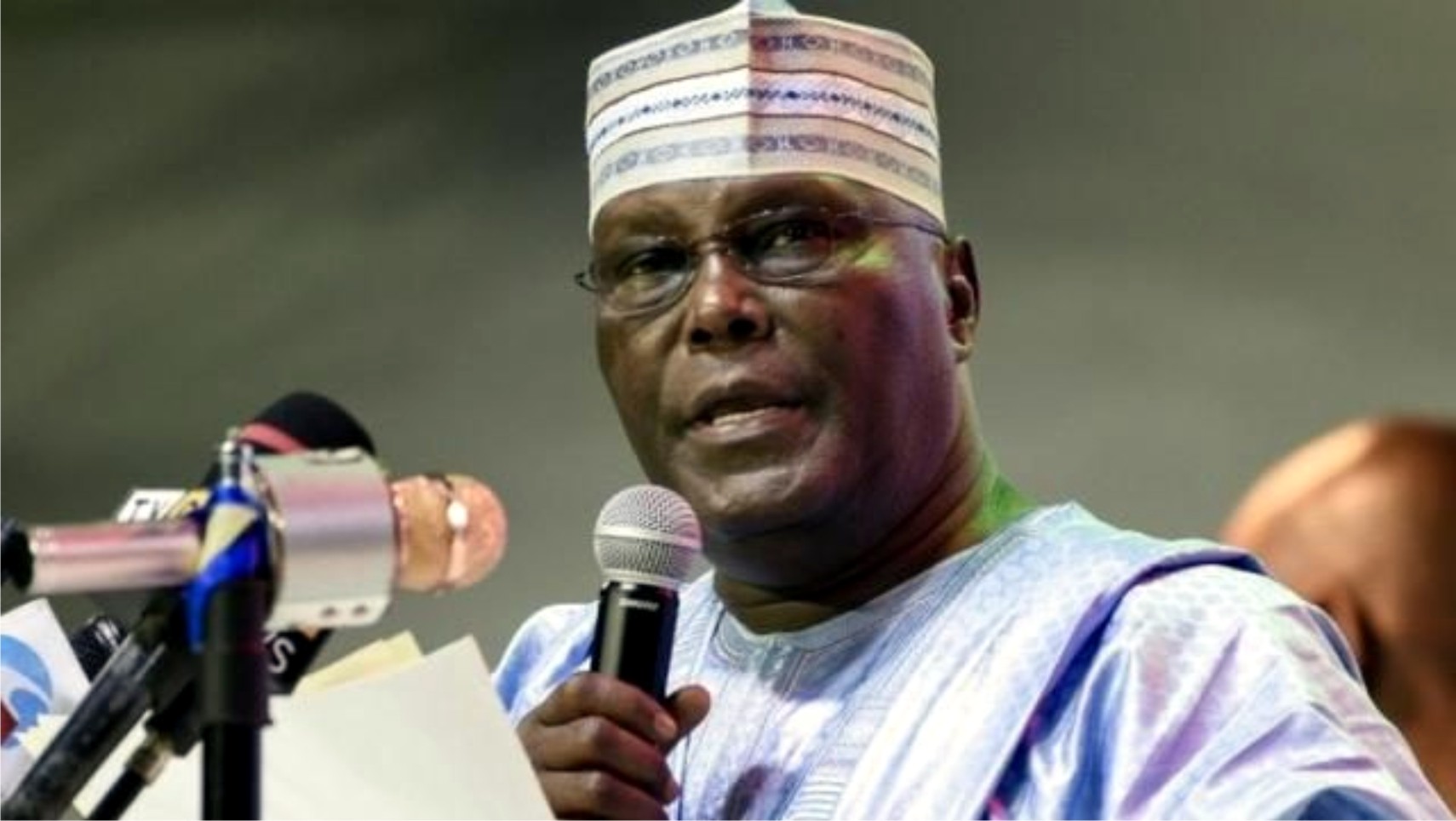Business
Group Urges CBN To Regulate Online Trading
A non-governmental organization United Global Resolve For Peace (UGRF), has called on the Central Bank of Nigeria (CBN) to regulate of all online trade merchant groups operating in Nigeria, just as an online trade merchant, Paxful Incorporation based in Estonia has denied a media report that it is defrauding Nigerians.
UGRF had petitioned the CBN, Economic and Financial Crimes Commission (EFCC) and the Ministry of Foreign Affairs over allegations that Nigerians are being defrauded by an online trade merchant group, Paxful based in Estonia.
The non-governmental organisation at a press briefing in Abuja yesterday through its Executive Director, Shalom Olaseni, said it is high-time the CBN put some measures and guidelines that would regulate the activities of all online merchant groups operating in Nigeria.
“There is the need for proper regulation of online trade merchant platforms in Nigeria so as to stop Nigerians particularly the youths from being defrauded by these online trade groups,” he said.
Reacting to the allegation, Paxful Public Relations Manager, Nina Paragoso in a statement made available to newsmen, said Paxful did not tolerate fraud or illicit activity from any of its users or employees, adding that the Paxful team was committed to providing a safe and open financial marketplace for everyone, and to that end, enforces specific terms and conditions on all platform users.
Paragoso explained that as part of the commitment to reduce fraud and any other illicit activity on the platform, a month ago, the online merchant group announced that they have teamed up with Jumio, a digital customer identity verification company, in order to improve anti-money laundering procedures and combat fraud on our marketplace globally.
The statement reads in part: “As part of our standard operating procedures, we cooperate with local law enforcement investigations and inquiries as they may pertain to activity on our platform and we are supportive of their efforts. Ultimately, our desire is for the proceeds of any crime to be returned to victims in cooperation with the directives of any local authorities.
“We do not freeze or ban customer accounts in any country arbitrarily. We have clear terms and conditions which a user is required to read and accept prior to creating an account on our platform. Accounts that violate our terms and conditions are flagged for investigation.
“As part of these investigations, Paxful often will require a flagged account holder to provide additional information and to go through additional KYC procedures. The funds in these accounts are held until Paxful can resolve its concerns.”
Business
Group Pledges Stronger Partnerships For Food Security

The River Basin Development Authorities (RBDAs) in Nigeria have pledged to boost the Federal Government’s food security efforts by forming stronger partnerships and adopting modern agricultural technologies.
The representative of RBDAs, Alhaji Abubakar Malam, who spoke on behalf of the boards and management teams at the close of a two-day retreat in Abuja, recently, acknowledged the numerous challenges facing the authorities.
He noted the persistent issues of ageing infrastructure, extreme weather conditions, and insecurity that continue to hinder optimal productivity across their zones.
Malam, who is also the Managing Director of the Sokoto Rima River Basin Development Authority, noted the dilapidated state of facilities and outdated equipment that limit the full potential of the river basin authorities.
“Our facilities are obsolete, and climate change is exacerbating the situation with flooding, erosion, and erratic weather patterns.
“Yet, we remain undeterred. We are committed to innovating, adopting modern irrigation technologies, and shifting the narrative of the River Basins to a more sustainable and productive future”, he said.
Malam emphasised that these objectives cannot be achieved in isolation and stressed the importance of collaboration.
He noted, “We are committed to building strong partnerships, particularly with state governments, to ensure that local actions are aligned with national priorities.
“Collaboration is key to enhancing extension services, addressing community needs, and improving project outcomes”.
The Managing Director also assured stakeholders that the river basin authorities will continue to maintain open-door policies under the federal government’s partial commercialisation framework, which aims to encourage private sector investment.
“This framework is seen as an essential step in reviving Nigeria’s agricultural sector by providing opportunities for agribusiness development, rural economy revitalisation, and sustainable irrigation practices.
“In alignment with President Bola Tinubu’s Renewed Hope Agenda and the UN Sustainable Development Goals (SDGs), particularly Goals 2 (Zero Hunger), 6 (Clean Water and Sanitation), and 13 (Climate Action), the RBDAs are focusing on expanding irrigated farmlands, equipping farmers with modern agricultural techniques.
“Others are enhancing value chains to reduce food waste, boost production, and improve market access.
“These efforts are designed to increase food availability and contribute to the goal of achieving food security for the nation by 2027”, he stated.
The Joint Appointees Forum further called on development partners, private sector players, and other stakeholders to seize the emerging opportunities in Nigeria’s agriculture sector.
The forum highlighted the potential for collaboration in revitalising rural economies through sustainable irrigation and agribusiness development, which will ultimately support the government’s food security agenda.
Business
SEC Cautions Nigerians Against Ponzi Schemes

The Securities and Ex-change Commission (SEC) has cautioned Nigerians on the dangers of Ponzi schemes, highlighting their devastating impact on investor confidence, financial stability, and the Nigerian capital market, specifically.
SEC in a release through the Head of its Enforcement Department, Dr. Sa’ad Abdulsalam, after an Enlightenment Programme on Capital Market, noted that the pitfalls and illegality of Ponzi Schemes ought to be avoided.
Abdulsalam stated that the proliferation of fraudulent investment schemes continue to erode public trust in formal investment platforms by offering unrealistic returns and operating outside the regulatory framework, destabilized investor sentiment and undermined participation in legitimate capital market activities.
“The erosion of market confidence caused by Ponzi schemes leads to significant volatility and reduced investor engagement.
”The fallout not only damages individual finances, but also tarnishes the reputation of regulatory institutions tasked with protecting investor interests”, he noted.
Beyond the capital market, Abdulsalam emphasized that the social and economic consequences of Ponzi schemes are far-reaching, noting that household financial losses, often involving life savings or borrowed funds, intensify socio-economic stress and threaten community cohesion.
“These losses are not just figures on a balance sheet. They represent broken trust, devastated livelihoods, and increased poverty in affected communities.
“Nigeria has a long and troubling history with Ponzi operations”, he explained.
He further noted that from the infamous Umanah Umanah scheme in the 1990s to Nospecto in the early 2000s and the widespread MMM craze of the 2010s, fraudulent fund managers have repeatedly exploited regulatory gaps and economic vulnerabilities.
According to him, over 400 unlicensed fund managers were uncovered in 2010 alone, underscoring the scale of the threat.
He attributed the rise of Ponzi schemes to several factors, including limited financial literacy, the lure of quick returns during periods of economic hardship, and the rapid spread of misinformation through social media.
Abdulsalam, however, noted that the proliferation of fraudulent investment schemes continues to erode public trust in formal investment platforms by offering unrealistic returns and operating outside the regulatory framework, destabilized investor sentiment and undermined participation in legitimate capital market activities.
By: Corlins Walter
Business
CBN Identifies Money Supply Increase From N114trn To N119trn In April

The Central Bank of Nigeria (CBN) has said money supply (M2) increased by 4.2 percent, month-on-month (MoM), from N114.2 trillion in March, to N119.1 trillion in April 2025.
According to the apex bank’s Money and Credit Statistics data for April 2025, the increase in money supply followed positive changes in its components, with Quasi-money, including savings deposits, time deposits, and other near-money assets, rising significantly.
The data showed that Quasi Money grew by 3.17 percent MoM to N78.1 trillion in April from N75.7 trillion in March.
Similarly, Demand Deposits increased by 7.4 percent MoM to N36.4 trillion in April from N33.9 trillion it was in March.
The CBN data report also showed that Narrow money (M1) also grew by 6.2 percent MoM to N41 trillion in April from N38.6 trillion it was in March.
Nevertheless, currency outside banks increased slightly by 0.4 percent MoM to N4.57 trillion in April from N4.59 trillion in March.
Also, the data showed that credit to the government fell by 8.8 percent MoM to N23.6 trillion in April from N25.9 trillion in March, representing the second consecutive month’s decline since March.
On the other hand, credit to the private sector grew by 2.1 percent MoM to N77.9 trillion in April from N76.3 trillion in March.
According to the data report, this resulted in a 0.61 percent MoM decline in net domestic credit to N101.5 trillion in April from the N102.13 trillion it was in the month of March.
By: Corlins Walter
-

 City Crime2 days ago
City Crime2 days agoEducation Remains A Cardinal Pillar Of My Administration – Ibas
-

 Politics3 days ago
Politics3 days agoAtiku, Onaiyekan, Sanusi, Others Advocate Action Against Poverty To Sustain Democracy
-

 Education2 days ago
Education2 days agoNiger Delta Students Suspend Protest Against NDDC In PH
-
Business3 days ago
‘Agriculture, Vital Part Of Rivers Economy’
-

 Niger Delta2 days ago
Niger Delta2 days agoOborevwori Promises Enhanced Transformational Leadership In Delta
-

 News2 days ago
News2 days agoRivers @ 58: Return To Path Of Peace, Forgiveness, Ibas Tells Rivers Stakeholders
-

 Politics3 days ago
Politics3 days agoEx-Dep Speaker Hails Tinubu, Wike Over FCT Dev
-

 City Crime2 days ago
City Crime2 days agoInfrastructural Decay Hinders Conduct Of 2025 JAMB, WASCE Exams – Obi

